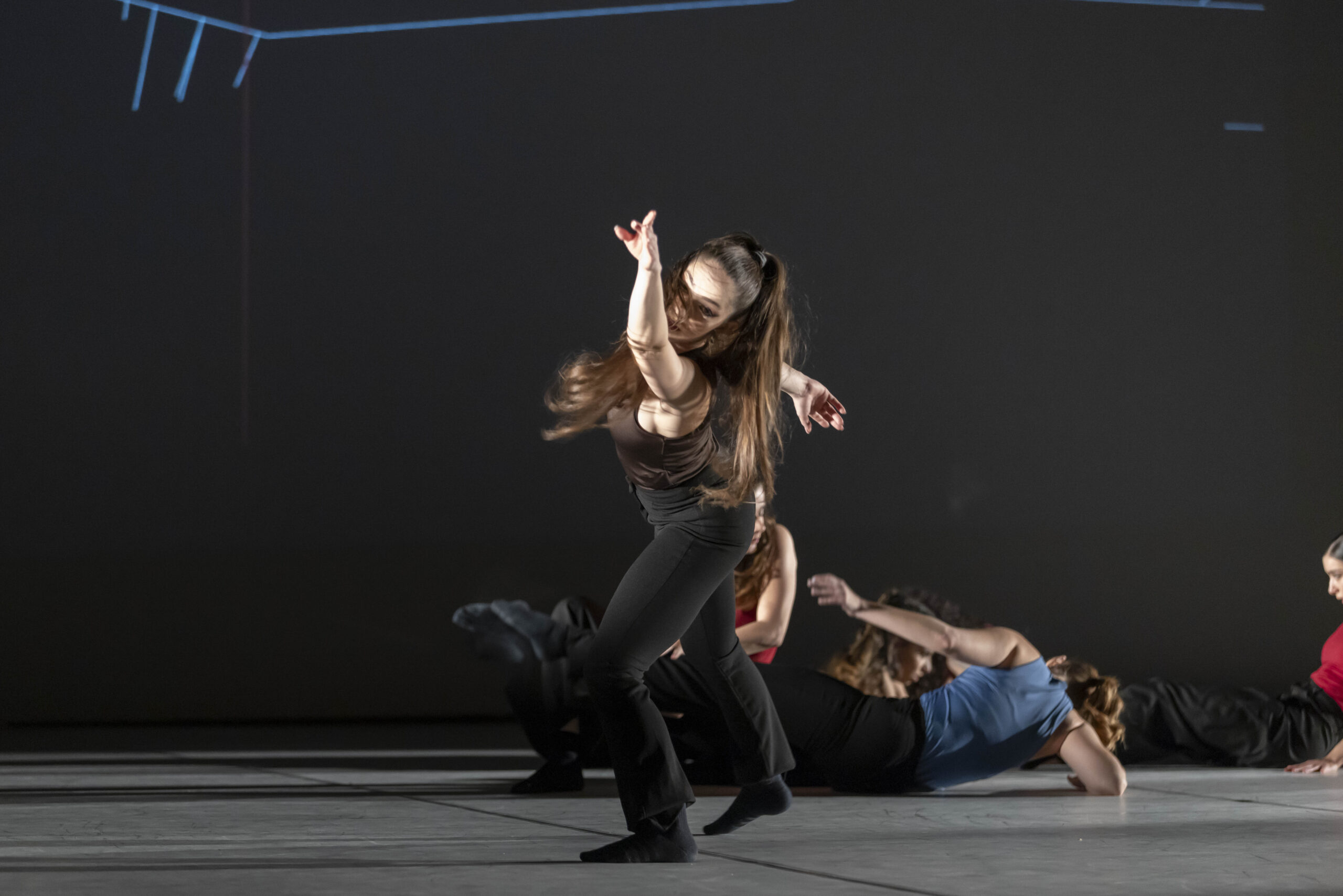
The 1st International Conference on Dance and Digitalization (ICDD 2024), organized by the Hungarian Dance University, was a great success, hosting 26 distinguished speakers from six European countries on 29 November. In addition to Hungarian researchers, speakers from the United Kingdom, France, Croatia, Germany and Romania arrived and praised the event.
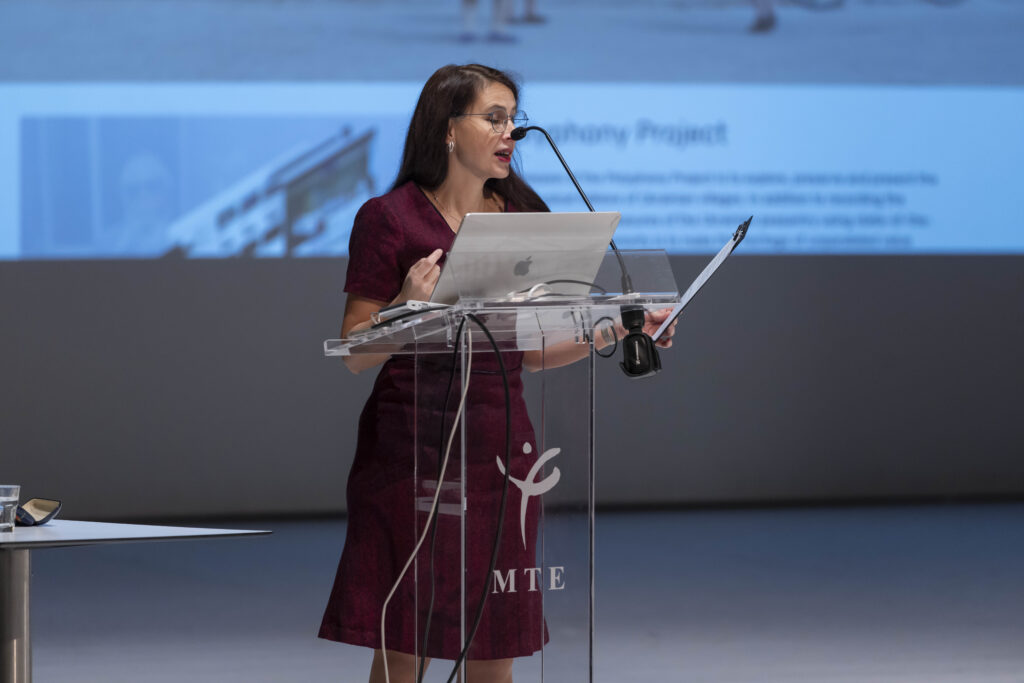
The presentations held in English and accompanied by spectacular digital demonstrations, showcased exciting research and teaching methods, and covered topics ranging from the archiving and notation of dance in the 21st century to its relationship with social media, pedagogy, technology and research. Many areas of dance were presented, from classical ballet, ballroom dancing, modern dance, fashion dance to folk dance.
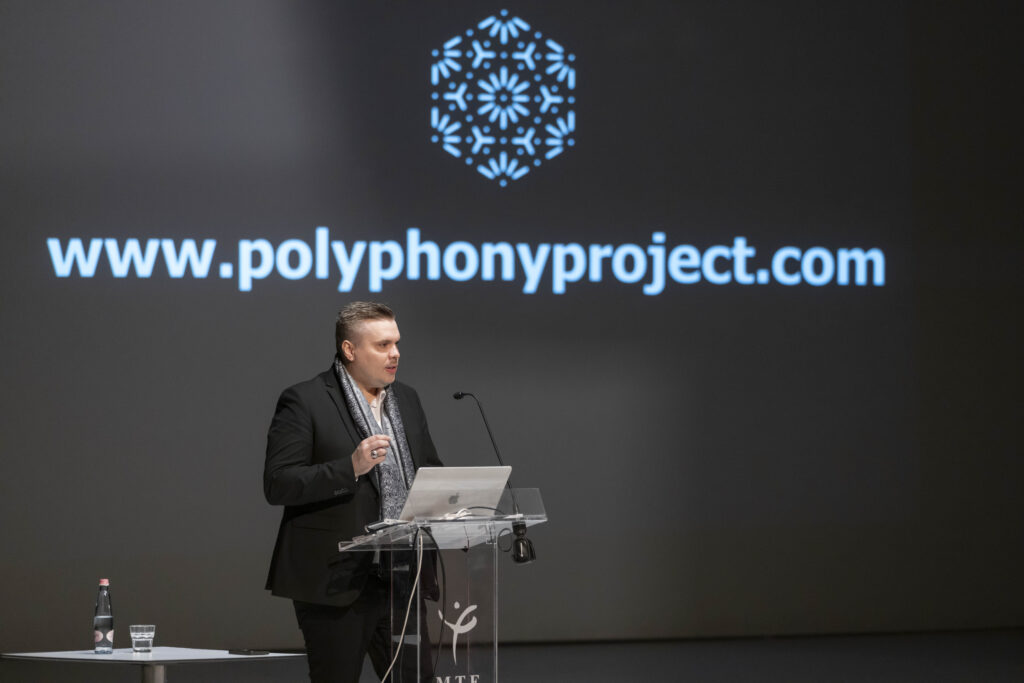
Miklós Both, the Director General of the Hungarian Heritage House, presented his impressive archiving projects, which have enabled him and his colleagues to create digital databases for research and education, breaking down folk music, essential for folk dance, into instruments and musical parts. His plenary speech was followed by thematic session presentations and workshops (see program), which included among others (see abstract booklet) a presentation on the recording of the folk dance treasure, which can be similarly broken down into its elements, by Júlia Redő of the Hungarian Heritage House. In addition to the Hungarian Heritage House, the researchers of the Archives and Department for Folk Music and Folk Dance Research of the Institute for Musicology, HUN-REN Research Centre for the Humanities presented the different steps of creating digital archives in high quality presentations that attracted the interest of the audience.
Pál Csillag, a lecturer at the university, gave a great talk spiced with humor about the challenges of archiving the almost destroyed but revived photo archives of the 75-year-old Hungarian University of Dance. The audience had the opportunity to hear from two former HDU students Milan Madar and István Zsigovics what lessons can be learned from a global ballet database for ballet schools and companies, or how a digital anatomy software can be used for effective competitive ballroom dancing education. Vipavinee Artpradid and Hetty Blades raised the issue of ownership in the context of online dance sharing by hip hop artists. Marisa Joana Berg discussed collective knowledge creation in virtual communities. Jasna Čižmek Tarbuk, from a Croatian art school, presented her choreographies demonstrating the intertwining of dance and technology. Marisa Kempe reported on her very interesting and novel research on the relationship between aesthetic perception and dance formations on stage.
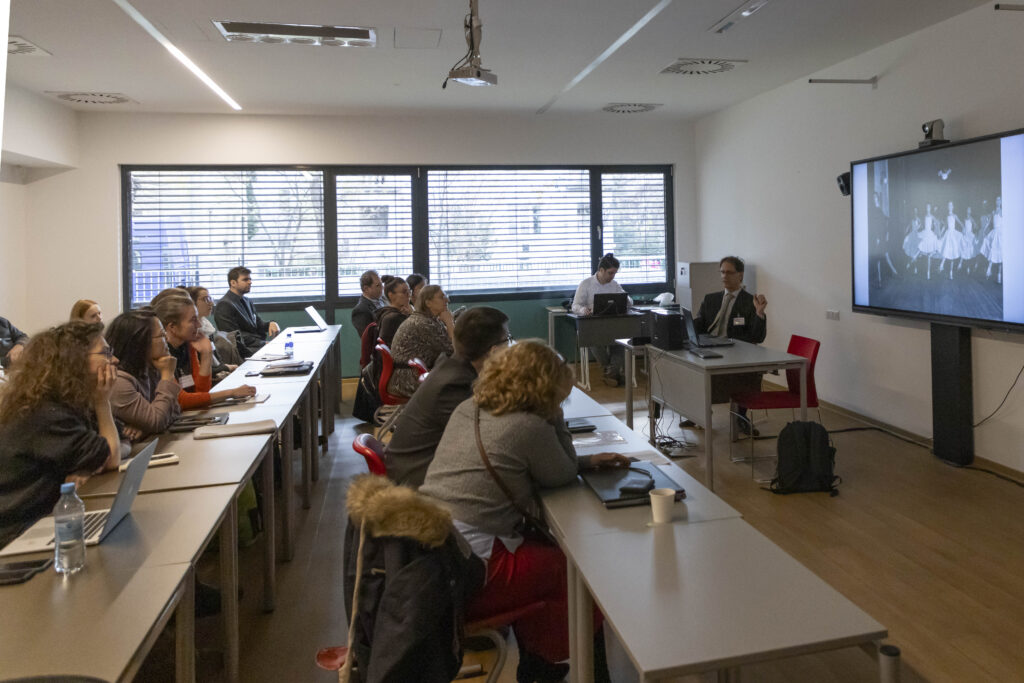
During the workshops, the audience was able to experience new technical and choreographic possibilities of stage duplication with digital tools under the guidance of Artistic Director Stephanie Felber, and to try out technological tools in dance by Associate Professor Henrik Kovács of HDU.
During the breaks, students from the university took our guests on a tour of the campus, and there were also plenty of opportunities to network and try out VR headsets for dance. In the meantime, our guests could watch a video selection on the relationship between dance and digitalization on projectors in the lobby.
The long but productive day was rounded off with an innovative and engaging evening dance performance. The graduate fashion dance students of HDU presented their improvisational performance Soundpainting with Body, coached by Associate Professor Gabriella Kézér of HDU and inspired by the digital background of notation signs by creative technologist Gábor Papp. The music was based on improvisational music by Miksa Sámuel Garami and Ariel Imrei.
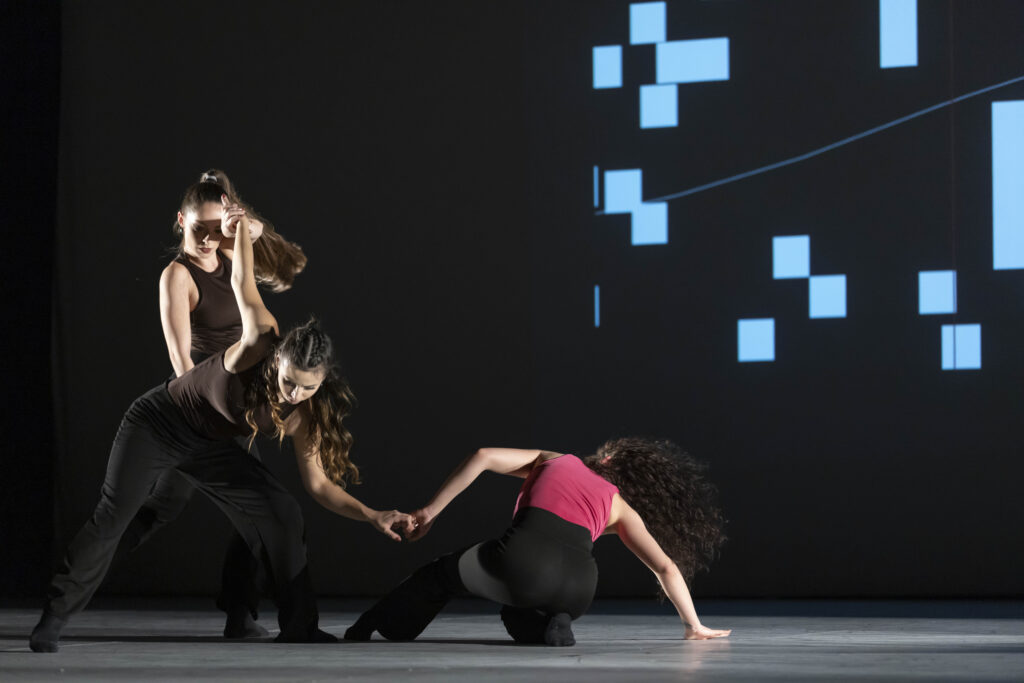
Photos by Pál Csillag
The Hungarian Dance Universty is proud to have been the first in Hungary to organize an international conference on the links between dance and technology from a scientific perspective. The comprehensive theme explored the interconnections between dance and digitalization in the most colorful way possible. Many thanks for the valuable and active participation of the speakers and guests, and for their positive feedback.
We look forward to welcoming a follow-up in two years’ time!


